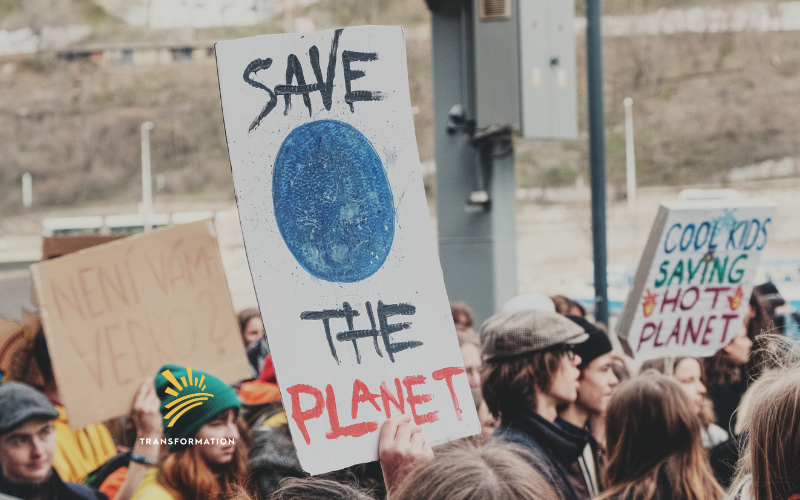The Impact of Social Activism on Global Sustainability
Exploring the impact of social activism on global sustainability is an incredibly important and relevant topic in our current climate. From clinical trials that test the efficacy of clean energy to the millions of years of coevolution between plants and animals, we must take into account global needs when considering energy sources.
The United Nations has become a leader in promoting green open access which could potentially help shift global trends towards more sustainable practices. This special issue will consider how social activism can shape our understanding of sustainability by looking at key topics such as:
- renewable energy sources
- environmental justice
- public health
- economic growth
Taking into account the needs of people and ecosystems alike is essential to creating just, equitable systems.
Renewable Energy Sources
With this in mind, it is important to understand how changes in policy or practice can have long-lasting implications for global sustainability over the next few generations. Renewable energy sources are becoming increasingly popular due to their affordability and wide-reaching potential for reshaping global trends toward cleaner energy production.
However, these shifts come with political complexities that require consideration on many levels if true progress is going to be made. Environmental justice issues are often an afterthought when developing new policies around clean energy production, which creates further inequities within already vulnerable populations. Additionally, public health considerations should be taken into account when transitioning from conventional fossil fuels to alternative ones such as wind power or solar panels, as emissions from these alternative sources can still have potentially detrimental effects if located too close to populated areas.
Furthermore, economic growth should also be part of any conversation about sustainability as investments in sustainable technologies have been linked to increased job opportunities and better quality living standards overall. Considering all these factors together allows corporations and governments alike to develop plans that promote both financial security and environmental stability. These plans will lead us closer to achieving a world where all people can flourish together with nature.
Impact of Social Activism
Climate change and environmental degradation are causing major havoc across the world. The ever-worsening ecological conditions due to unprecedented changes in the weather patterns—such as prolonged famine and heavy rainfall that result in flooding—, cause significant harm to biodiversity, natural resources, and human health.
We cannot afford to sit back and watch for the ecosystems to balance themselves automatically. There is an urgent need for environmentalists and social activists to spring into action after years of research papers discussing climate action, to come up with ways of mitigating the adverse impacts of climate change.
If well-coordinated, social activism has the potential to promote sustainable development and help regain environmental health. Social activism fosters global sustainability initiatives, creates awareness, provides transparent and open access to climate change information, and mobilizes individuals and communities.
The Rise of Social Activism
Social activism has revolutionized how the public air grievances about social and political issues for decades. Case studies on social movements such as Extinction Rebellion, Fridays for Future, and Black Lives Matter in the United States shed light on the most pressing issues that governments often ignored or swept under the carpet.
In environmental sustainability, social activism focuses on sensitizing the public about climate change and its effects on the current and future generations. It also aims to encourage people and governments to take action on issues that affect communities and the environment.
Merging of Social Activism and Sustainability Incentives
Sustainability focuses on meeting the needs of the present generations without depleting available natural resources. It advocates for wise use of the available natural resources to ensure that future generations derive the same benefits or utility from them.
In addition, sustainable development fosters economic growth, social development, and environmental protection. So far, social activism has achieved significant results and continues to impact global sustainability initiatives positively.
Let’s dive in and look at six ways social activism influences global sustainability activities.
Awareness and Education
People are more likely to participate in environmental justice initiatives when they understand the possible outcomes and how they will impact society. Social activism helps to create awareness and educate people about the various environmental issues, causes, and impacts.
Social activists raise attention to overlooked environmental issues such as over-reliance on fossil fuels through public rallies and social media campaigns. They also publish advanced research reports containing figures and tables about environmental issues to help the public better understand the initiatives. These actions mobilize communities and individuals to take strategic steps to achieve climate justice.
Create Political Pressure
It’s the mandate of political leaders and community leaders to develop and implement policies to address environmental issues arising from climate change and global warming. Unfortunately, most politicians don’t understand the magnitude of the effects of climate change or are reluctant to advocate for better environmental conservation.
Social activism pressures governments to take appropriate action on issues such as flooding due to heavy rainfall and high temperatures. The activists can influence political decision-making through public rallies, lobby efforts, and protests. Exerting pressure ensures that environmental issues are no longer ignored and are given the attention they deserve.
Corporate Responsibility
Corporate responsibility refers to a business model tailored to ensure companies are socially accountable to themselves, the public, and stakeholders. Multiple research studies and research questions have proved air pollution to be the primary cause of global warming.
Companies need to be called out for releasing CO2 into the atmosphere and other forms of pollution. Social activism strives to inform the public and government about the environmental impacts of companies’ product manufacturing and processing activities.
Their goal is not to force corporations and companies to close shut. They aim to encourage them to improve their processes to prevent further environmental degradation, reduce their carbon footprint, adopt sustainable practices, and conserve natural resources.
Public Opinion
Even though there is a global outcry about the impacts of climate change, most people don’t fully understand what it’s all about. Social activism helps to create awareness and educate the public about environmental issues. Through public sensitization actions, they create a demand for green or eco-friendly products and sustainable policies. These actions shape public opinion about ecological sustainability.
Spearhead Collaboration
Governments cannot be able to mitigate the effects of climate change single-handedly. They should work with non-governmental organizations to create and implement sensible sustainability policies.
Social activism is at the heart of the collaboration between governments, stakeholders, corporations, and civil society organizations. They make it possible for parties conscious about the sustainability of the environment to partner and work together to make the planet a better place for the current and future generations.
Grassroots Mobilization
Grassroots movements are often ignored, yet they can influence decision-making at the community and government levels. Social activities apply a bottom-up approach to mobilize communities to participate in sustainability initiatives. The approach raises awareness on issues, participatory and inclusive as it allows communities to own up to the environmental issues affecting them.
Social Activism
Social movements are an important mechanism for mobilizing public opinion and driving policy change by petitioning governments to take decisive action on climate change while ensuring that the interests and rights of those most vulnerable to its effects are taken into account.
These grassroots efforts have led to increased awareness about the need for equitable access to energy sources, reduction in greenhouse gas emissions from power plants through renewable energy investments, protection from displacement due to climate-related disasters, and more importantly forcing corporations and governments alike towards greater accountability for their actions that help protect vulnerable populations as well as future generations.
In recent years there has been a surge in public pressure generated by social activists from civil society organizations around the world demanding increased transparency and accountability from Fossil Fuel Corporations (FFCs). This has resulted in various campaigns such as boycotting certain products made by FFCs or calling out FFCs on their unsustainable practices which again helps ensure environmental justice is being accorded its due weightage when making decisions regarding climate change initiatives.
Final Thoughts
To sum up, it is clear that social activism plays an integral role in bringing global sustainability closer to reality. It provides citizens with a much-needed voice while pushing governments towards more equitable solutions when tackling climate change-related issues. It also ensures an increased focus on environmental justice principles rooted in human rights.
The impact of our social activism is essential for creating a more sustainable future and achievement of environmental justice. We must continue to support and amplify the voices of social activists who advocate for change. As individuals, we can also promote sustainability by taking action in our lives and supporting sustainable practices and policies. We can create a more sustainable world for ourselves and the future.




Leave a Reply